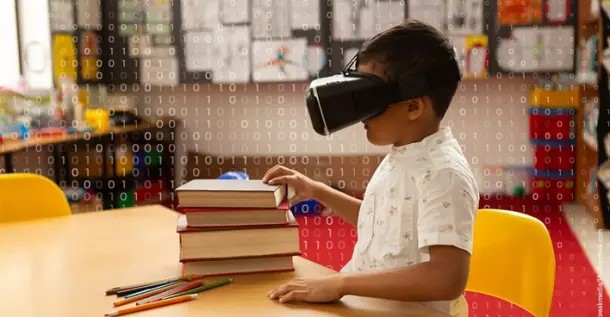العودة

Arab Region rising to the challenge by implementing transformative actions in education
اليونسكو
2024 - 10 - 04
As the new academic year unfolds, the focus is on education—a source of inspiration and transformation for Lebanon and the Arab region. In a time of rapid change and evolving challenges, education remains a powerful tool for shaping our future. It’s not just about learning from textbooks; it’s about fostering a culture of curiosity, resilience, and innovation.

As the new academic year unfolds, the focus is on education—a source of inspiration and transformation for Lebanon and the Arab region. In a time of rapid change and evolving challenges, education remains a powerful tool for shaping our future. It’s not just about learning from textbooks; it’s about fostering a culture of curiosity, resilience, and innovation.
Education in Lebanon and the Arab region is entering a new era, characterized by a commitment to inclusivity, sustainability, and excellence. Schools and educational institutions are embracing modern teaching methods, integrating technology, and fostering environments where learners can thrive both academically and personally. This shift represents more than just a trend; it’s a profound transformation aimed at preparing learners for a world that demands creativity and adaptability. Central to this transformation is the emphasis on teaching 21st-century skills and soft skills, which are crucial for navigating the complexities of the modern world and succeeding in diverse and dynamic environments.
Innovation is at the heart of this educational evolution. From interactive digital platforms to hands-on learning experiences, educators are finding new ways to engage learners and make learning more relevant. In Lebanon, initiatives are underway to incorporate technology into classrooms, enabling learners to connect with global ideas and perspectives. Similarly, across the Arab region, there is a growing emphasis on STEM education and digital literacy, equipping learners with skills that are crucial in today’s job market. However, human societies face the dual challenges of digital and green transitions. While technology promises progress, it also introduces ethical issues, particularly with AI, and accelerates digitalization's impact on climate change. Generative AI's rapid rise is outpacing regulatory adaptations, and the digital economy's extractive model and e-waste undermine sustainable development.
Inclusivity is another cornerstone of this educational transformation. Schools are increasingly focusing on creating environments where every learner, regardless of their background, has the opportunity to succeed. This includes addressing the needs of learners with disabilities, providing support for those from underprivileged communities, and ensuring that educational resources are accessible to all. Fostering an inclusive environment not only supports individual success but also contributes to building a more equitable society.
Sustainability is becoming an integral part of education. In Lebanon and the Arab region, there is a growing recognition of the need to educate learners about environmental issues and sustainability practices through Education for Sustainable Development. Schools are incorporating greening education practices into their operations and curricula, helping learners understand the importance of protecting our planet. This approach not only raises awareness but also empowers learners to take proactive roles in their communities. Education systems must foster human-centered mindsets and digital competencies to align these transitions, ensuring that technology supports sustainable and ethical goals.
Looking ahead, the future of education in Lebanon and the Arab region is filled with promise. Embracing innovation, inclusivity, and sustainability sets the stage for a brighter, more resilient future. Educational institutions, policymakers, and communities are all contributing to this transformation, creating environments where learners can excel and make meaningful contributions to society.
As we enter this new academic year, it is essential to recognize the progress we’ve made and anticipate the opportunities that lie ahead. Investing in our educational systems is an investment in the potential of every learner and, ultimately, in the prosperity of our region to be able to nurture a culture of learning that empowers the next generation to lead with vision, compassion, and integrity.
Click her to learn more about UNESCO’s work on Digital learning and transformation.
أحدث المنشورات
القائمة الكاملةاليونسكو
المستقبل على المحك: لماذا الاستثمار في التعليم أمر بالغ الأهمية؟
يسلط هذا التقرير، الذي أعدّته اللجنة التوجيهية الرفيعة المستوى المعنية بالهدف الرابع من أهداف التنمية المستدامة (SDG4) بالتعاون مع الشراكة العالمية من أجل التعليم (GPE) ونُشر في عام 2024، الضوء على الحاجة المُلِحّة لتعزيز الاستثمار في التعليم كوسيلة أساسية لمواجهة التحديات العالمية، بما في ذلك تغيّر المناخ، والتطورات التكنولوجية، والتحوّلات الديموغرافية.
اليونسكو
المدن العربية تتألق في جوائز مدن التعلم لليونسكو لعام 2024
تُحرز المدن العربية تقدمًا كبيرًا في مجال التنمية المستدامة والتعلم مدى الحياة، مع تركيز متزايد على إنشاء بيئات تعليمية شاملة تُسهم في تحقيق الأهداف التنموية المحلية والعالمية. وقد احتفلت جوائز مدن التعلم لعام 2024، التي تُمنح من قِبَل اليونسكو، بهذه الجهود، مبرزةً المدن العربية التي تميزت في بناء مجتمعات تعليمية.
اليونسكو
مؤتمر اليونسكو العالمي الثالث للموارد التعليمية المفتوحة: تعزيز الوصول الشامل إلى المعرفة
انطلق مؤتمر اليونسكو العالمي الثالث للموارد التعليمية المفتوحة (OER) في 19 نوفمبر/تشرين الثاني 2024، في مركز دبي التجاري العالمي في دولة الإمارات العربية المتحدة، ليكون المرة الأولى التي يُستضاف فيها هذا الحدث في العالم العربي. نظّم مؤتمر اليونسكو بالتعاون مع مؤسسة محمد بن راشد آل مكتوم للمعرفة (MBRF)واستقطب أكثر من 500 مشارك ومشاركة من نخبة القادة العالميين، وصنّاع السياسات، وممثلي المؤسسات التعليمية، بما في ذلك وزراء، وأكاديميون، وخبراء من القطاع الخاص. وتركّزت المناقشات على مدار يومين حول تعزيز الاستفادة من الموارد التعليمية المفتوحة والتقنيات الناشئة، بهدف تحقيق وصول عادل وشامل إلى التعليم، وتقليص الفجوة الرقمية على الصعيد العالمي.
اليونسكو
الأمم المتحدة تحتفي في شهر ديسمبر/كانون الأول بحقوق الإنسان، والأشخاص ذوي الإعاقة، واللغة العربية
تُحيي الأمم المتحدة في شهر ديسمبر/كانون الأول ثلاث مناسبات بارزة تُعنى بحقوق الإنسان، وبحقوق الأشخاص ذوي الإعاقة، وباللغة العربيّة، ممّا يجعل هذا الشهر فرصةً عالميّةً للتفكير والعمل. وتقود اليونسكو الجهود لتعزيز التعليم الشامل، وحماية حقوق الإنسان، والاحتفاء بالإرث الثقافيّ واللغويّ للّغة العربيّة، من خلال سلسلة من الفعاليات والمبادرات.